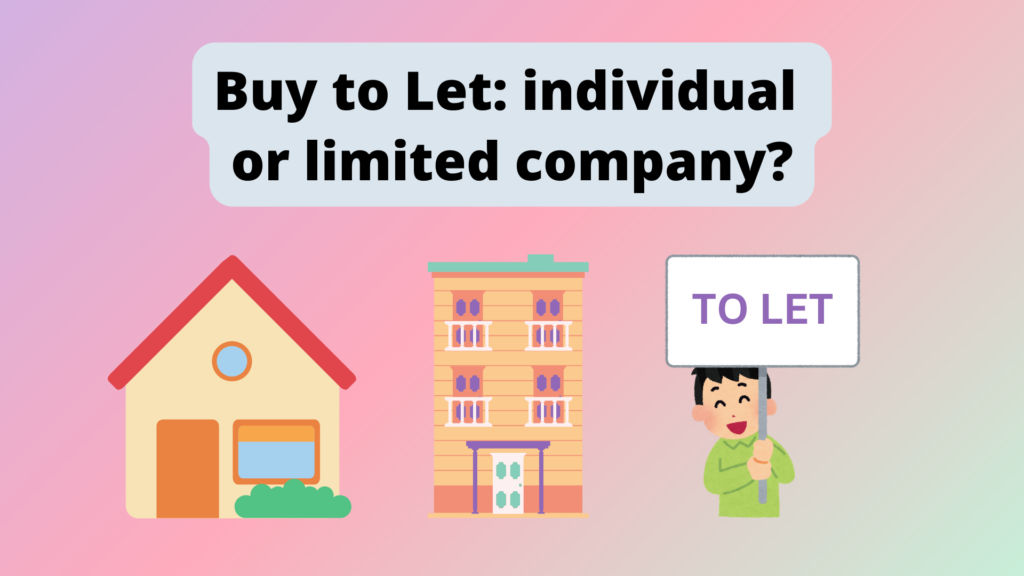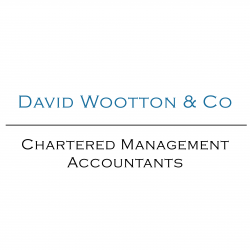We’re often asked for advice on whether or not to buy an investment property via a limited company.
The answer, as always, is that it depends on the circumstances. There are pros and cons to either approach, as we explain in this month’s blog.

The options
You can either buy property personally or through a limited company, also called a property investment company or Special Purpose Vehicle (SPV).
If you buy personally, the deeds and mortgage are in your name, and you pay income tax on your rental profits.
Or, you can set up a limited company, owned by you. The company buys the properties, the mortgages are in the company name and the company pays corporation tax on the rental profits.
Benefits of Buy to Let through a limited company
There are a few good reasons why people set up a limited company to buy property…
- Better taxation of mortgage interest. A limited company can offset 100% of the mortgage interest, reducing the profit and therefore the tax due.
- Lower taxation for higher rate taxpayers. If you’re a higher rate taxpayer or plan on owning multiple properties, there can be a tax saving. Rental profits are taxed at the current rate of corporation tax, which tends to be around 50% of higher rate income tax.
- Flexibility. You have flexibility around what you do with the profits. You can invest in further properties, save into a tax-efficient pension or take dividends. That flexibility can help with tax planning.
- Good for growing portfolios. If youplan to expand your property portfolio, there are usually tax savings via a limited company. You can retain your profits in the company for future purchases and protect them from tax.
5. Inheritance tax and legacy planning. If you plan to pass your properties onto your family in future, it’s simpler to transfer a limited company than a property. Because the company owns the property, that can protect against stamp duty, inheritance tax and capital gains tax liabilities.
Disadvantages of limited companies for Buy to Let
There are a few things to be aware of before you decide to set up a limited company for investment properties.
- More expensive for basic rate taxpayers. If you’re a basic rate taxpayer and you plan to own one to two properties, it may not benefit you to set up a limited company. If your salary is likely to remain under the higher rate tax threshold and you have no plans to buy more property, it makes sense to buy in your personal name.
- Additional legal responsibilities and costs. As a company director, you need to keep accurate financial records and submit accounts and returns to Companies House and HMRC. Most people appoint an accountant to deal with this, which is an added cost.
- Double taxation. In a limited company, you pay corporation tax on your profits. If you want to take money as a salary or dividends, you’ll also pay income tax. There are strategies to mitigate double taxation, so seek advice before setting up your company.
- Capital gains tax considerations. If you sell a rental property personally, you’ll need to pay capital gains tax – but you do get a tax-free allowance. A limited company doesn’t get the tax-free allowance, but the rate of tax is lower. If selling property is a key part of your strategy, get some tax advice.
- Mortgage costs. Buy to Let mortgages are more expensive for a company. Lenders charge higher interest rates and fees to limited companies compared to individuals. But stress testing is often more favourable for limited companies. A mortgage broker can advise on the best deals for you.
I already own Buy to Let property – should I transfer it into a limited company?
Moving your property into a limited company is not cheap or straightforward. You will sell each property to your company, which can generate numerous costs:
Stamp duty: Your company will have to pay stamp duty when buying the property. Check the stamp duty thresholds and bands on the government website. You usually pay 3% on top of these rates if you own another residential property.
Capital gains tax: If the market price is higher than your original purchase price, you are personally liable to capital gains tax at 18% or 24%, depending on whether you are a basic or higher rate taxpayer.
Early repayment fee: A penaltymay apply if you end your mortgage early to switch to a company Buy to Let mortgage.
Mortgage costs: There will be costs to secure a company Buy to Let mortgage for the property. Limited companies have fewer mortgage options, which could mean higher interest rates.
Legal fees: These will also come into play for transferring properties and updating the Land Registry.
Everyone’s situation is different. Whether you’re starting out as a landlord or you already own Buy to Let property, it’s important to seek tax and mortgage advice so you can make an informed decision.
Need some tax advice on Buy to Let? We can help. As Lune Valley accountants we provide personalised support to many landlords in the city. Contact us today.

